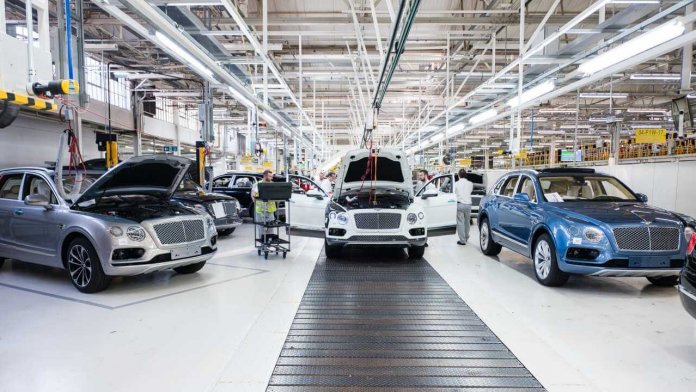Each year, focus2move ranks among the largest car manufacturers. To create it, data from focus2move's own database is used, based on more than 300 sources, including all official auto suppliers.
| Place 2017 | Place 2016 | Manufacturer | Sold in 2017 | Sold in 2016 | Difference | Market share 2017 | Market share 2016 |
|---|---|---|---|---|---|---|---|
| 1 | 1 | Volkswagen Group | 10.377.478 | 10.030.440 | 3,5% | 11,0% | 10,9% |
| 2 | 2 | Toyota M.C. | 10.176.362 | 10.007.207 | 1,7% | 10,8% | 10,9% |
| 3 | 3 | Renault Nissan Alliance | 10.075.185 | 9.504.725 | 6,0% | 10,7% | 10,3% |
| 4 | 4 | Hyundai-Kia | 7.246.003 | 7.940.022 | -8,7% | 7,7% | 8,6% |
| 5 | 5 | General motors | 6.861.601 | 6.834.317 | 0,4% | 7,3% | 7,4% |
| 6 | 6 | Ford M.C. | 6.243.891 | 6.345.109 | -1,6% | 6,6% | 6,9% |
| 7 | 7 | Honda M.C. | 5.323.537 | 4.950.068 | 7,5% | 5,7% | 5,4% |
| 8 | 8 | F.C.A. | 4.791.661 | 4.776.789 | 0,3% | 5,1% | 5,2% |
| 9 | 9 | P.S.A. | 4.106.791 | 4.274.662 | -3,9% | 4,4% | 4,6% |
| 10 | 10 | Suzuki | 3.155.619 | 2.826.964 | 11,6% | 3,3% | 3,1% |
| 11 | 11 | Mercedes Benz | 2.638.826 | 2.452.026 | 7,6% | 2,8% | 2,7% |
| 12 | 12 | Bmw | 2.456.511 | 2.385.085 | 3,0% | 2,6% | 2,6% |
| 13 | 15 | Geely Group | 1.925.955 | 1.406.112 | 37,0% | 2,0% | 1,5% |
| 14 | 13 | SAIC Motor | 1.803.877 | 1.722.743 | 4,7% | 1,9% | 1,9% |
| 15 | 14 | Mazda | 1.575.796 | 1.529.757 | 3,0% | 1,7% | 1,7% |
| 16 | 16 | ChangAn | 1.426.965 | 1.400.812 | 1,9% | 1,5% | 1,5% |
| 17 | 19 | Dongfeng Motor | 1.090.215 | 1.052.679 | 3,6% | 1,2% | 1,1% |
| 18 | 17 | BAIC | 1.083.021 | 1.228.695 | -11,9% | 1,1% | 1,3% |
| 19 | 20 | Fuji Heavy Industries | 1.056.929 | 1.011.567 | 4,5% | 1,1% | 1,1% |
| 20 | 21 | GM-SAIC-Wuling | 1.017.662 | 760.292 | 33,9% | 1,1% | 0,8% |
| 21 | 18 | Great wall motors | 1.006.322 | 1.090.841 | -7,7% | 1,1% | 1,2% |
| 22 | 22 | Tata | 828.240 | 759.989 | 9,0% | 0,9% | 0,8% |
| 23 | 23 | Chery Automobile | 648.390 | 689.401 | -5,9% | 0,7% | 0,7% |
| 24 | 31 | GAC Group | 510.048 | 392.856 | 29,8% | 0,5% | 0,4% |
| 25 | 24 | Jac Motors | 444.657 | 598.094 | -25,7% | 0,5% | 0,6% |
This is what the top ten world car manufacturers look like in 2017. Despite the fact that it includes only Japanese, American, South Korean and European companies, China's Geely showed the largest productivity gains. Thanks to the success in the Chinese domestic market, as well as the acquisition of control over the Malaysian brand Piton and the British luxury brand Lotos, it sold 37% more vehicles (1.9 million units) than last year, and was ranked 13th.
10. Suzuki
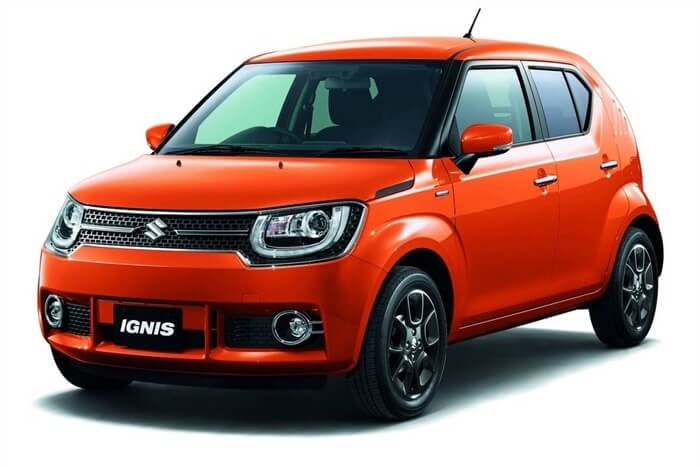 The Japanese carmaker sold 3.1 million vehicles last year. Compared to 2016, Suzuki auto sales soared 11.6%. This was facilitated by successful domestic sales in Japan and India, where subsidiary Maruti-Suzuki controls almost half (45.5%) of the fast-growing auto industry. However, the Japanese car brand is also strong in Europe with a wave of new products such as Ignis and Baleno.
The Japanese carmaker sold 3.1 million vehicles last year. Compared to 2016, Suzuki auto sales soared 11.6%. This was facilitated by successful domestic sales in Japan and India, where subsidiary Maruti-Suzuki controls almost half (45.5%) of the fast-growing auto industry. However, the Japanese car brand is also strong in Europe with a wave of new products such as Ignis and Baleno.
9. PSA
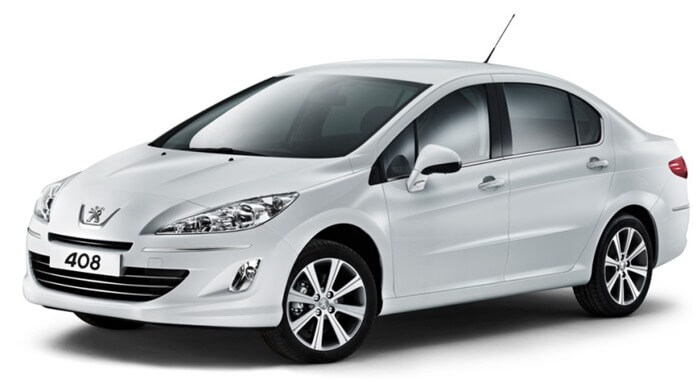 With the acquisition of Opel, the French car manufacturer ranked ninth among the most successful automotive companies. He has 4.79 million in sales, down 3.9% from 2016.
With the acquisition of Opel, the French car manufacturer ranked ninth among the most successful automotive companies. He has 4.79 million in sales, down 3.9% from 2016.
Since 2012, the PSMA Rus plant has been operating in Russia, which produces cars according to the full production cycle. It produces not only light duty trucks, but also sedans such as the Peugeot 408 and Citroen C4 Sedan, as well as Mitsubishi-branded SUVs - Outlander and Pajero Sport.
8.FCA
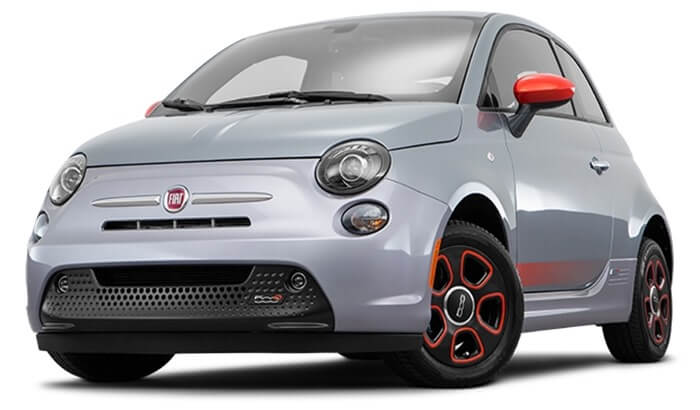 The Italian-American company reported 4.79 million vehicle sales, up 0.3% from 2016. One of the best-selling models in the West is the Fiat 500. This hatchback is not very popular in the Russian market, but the owners speak of it exclusively in a positive tone. And Fiat's super popular car in Italy is the Panda.
The Italian-American company reported 4.79 million vehicle sales, up 0.3% from 2016. One of the best-selling models in the West is the Fiat 500. This hatchback is not very popular in the Russian market, but the owners speak of it exclusively in a positive tone. And Fiat's super popular car in Italy is the Panda.
7. Honda MC
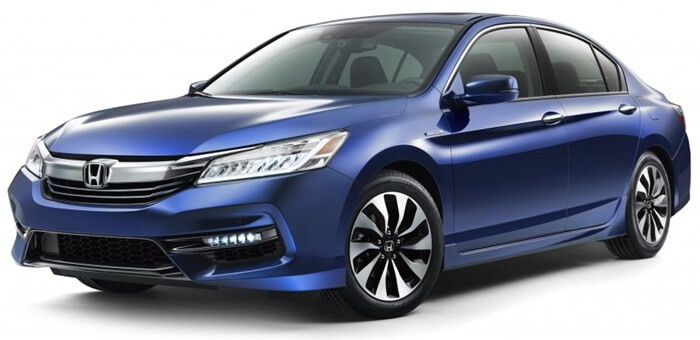 Following steady growth, the Japanese company sold 5.3 million vehicles last year, up 7.5% from 2016. Its Honda CR-V SUV, Honda Accord sedan and Honda Civic hatchback are some of the best-selling passenger cars in the world.
Following steady growth, the Japanese company sold 5.3 million vehicles last year, up 7.5% from 2016. Its Honda CR-V SUV, Honda Accord sedan and Honda Civic hatchback are some of the best-selling passenger cars in the world.
6. Ford MC
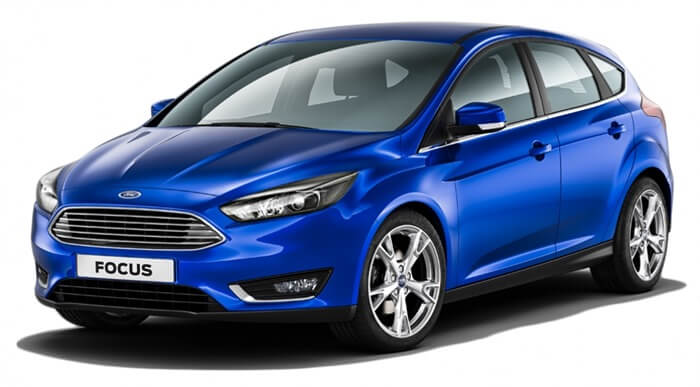 Although the American company was ranked sixth in the list of the largest auto companies, its sales figures have deteriorated compared to 2016 (6.2 million units versus 6.3 million units, respectively). This is due to a personnel reshuffle - CEO Mark Fields was fired from Ford. Under him, Ford showed less determination and dexterity than its main competitor, General Motors.
Although the American company was ranked sixth in the list of the largest auto companies, its sales figures have deteriorated compared to 2016 (6.2 million units versus 6.3 million units, respectively). This is due to a personnel reshuffle - CEO Mark Fields was fired from Ford. Under him, Ford showed less determination and dexterity than its main competitor, General Motors.
As for the most popular models, the Ford F-Series pickup continues to dominate its class thanks to its unwavering position in the United States. And the Ford Focus is one of the world's best-selling cars.
That being said, the biggest loser of 2017 is the Ford Fusion, which lost almost a third of global sales.
5. General Motors
 With the completion of the sale of Opel (together with its subsidiary Vauxhall brand) to PSA, General Motors moved up from 4th to 5th position in the 2018 ranking of the world's largest automakers. It sold 6.86 million units, an improvement of 0.4%, and that's not counting sales of Opel cars.
With the completion of the sale of Opel (together with its subsidiary Vauxhall brand) to PSA, General Motors moved up from 4th to 5th position in the 2018 ranking of the world's largest automakers. It sold 6.86 million units, an improvement of 0.4%, and that's not counting sales of Opel cars.
4. Hyundai-Kia
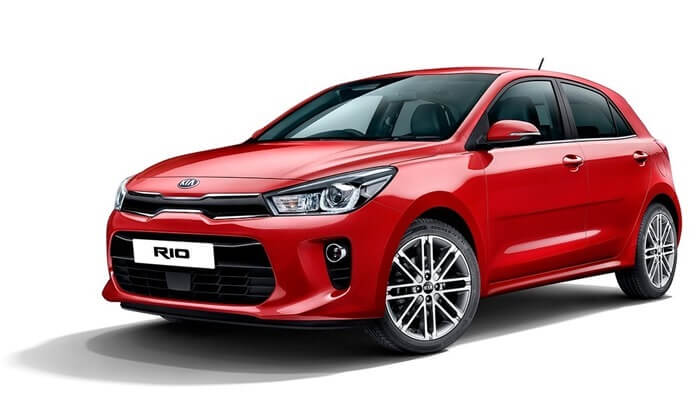 Another manufacturer that is fighting for the Chinese market, but is in big trouble due to anti-South Korean sentiment in the country after heightened tensions between the two Koreas. Although sales of Hyundai-Kia vehicles rose in other countries, in China they were down 26%. In total, in 2017, the company sold 7.2 million cars, which is 8.7% lower than in 2016.
Another manufacturer that is fighting for the Chinese market, but is in big trouble due to anti-South Korean sentiment in the country after heightened tensions between the two Koreas. Although sales of Hyundai-Kia vehicles rose in other countries, in China they were down 26%. In total, in 2017, the company sold 7.2 million cars, which is 8.7% lower than in 2016.
3. Renault-Nissan
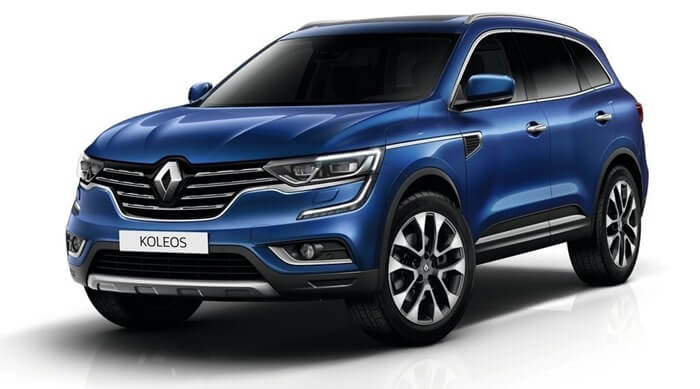 The Franco-Japanese Alliance opens three leaders in the production of passenger cars. The alliance owes much of its record sales to its merger with Mitsubishi Motors in 2016. In total, over 10 million vehicles were sold in 2017, an increase of 6% over last year's ranking.
The Franco-Japanese Alliance opens three leaders in the production of passenger cars. The alliance owes much of its record sales to its merger with Mitsubishi Motors in 2016. In total, over 10 million vehicles were sold in 2017, an increase of 6% over last year's ranking.
2. Toyota Motor
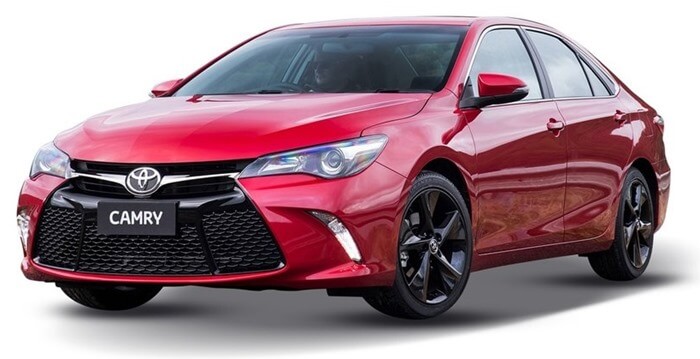 The Japanese company again fell short of the first place in terms of global car sales. For the second year in a row, it concedes the palm to the German Volkswagen.
The Japanese company again fell short of the first place in terms of global car sales. For the second year in a row, it concedes the palm to the German Volkswagen.
Toyota's global vehicle sales in 2017 totaled a record 10.17 million units, up 1.6% from 2016.
The lag behind Volkswagen is mainly due to mixed performance in emerging markets, especially in China, where the German automaker increased volume by 5.1% to 4.18 million vehicles.
While Toyota's sales in Europe and China rose, figures for the Middle East and the United States fell 14.9% and 0.6%, respectively.
At the same time, the Japanese do not intend to purposefully achieve a larger volume, fearing that this may worsen the quality of the cars produced. The company plans to sell 10.49 million vehicles in 2018. At the same time, it is expected that Japanese sales will fall by 5% due to the fact that interest in new (at the moment) versions will decrease, but overseas sales will grow by 3%.
1. Volkswagen Group
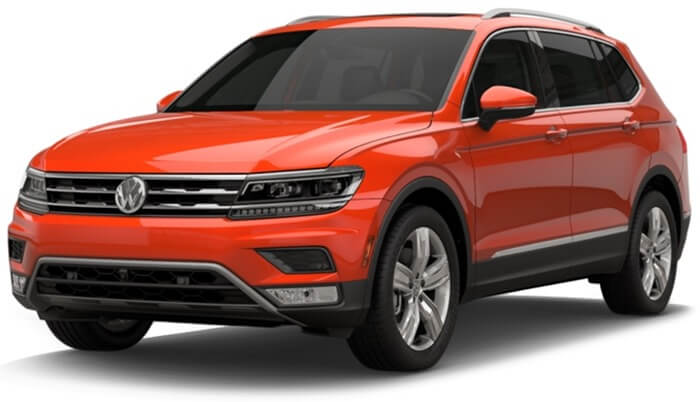 The leader of the top 10 most successful automakers is the German Volkswagen, which produces one of the the safest cars in the world. In 2017, it sold 10.37 million cars, a 3.5% improvement over 2016. This is despite the "diesel scandal" in which the German automaker pleaded guilty to deliberately lowering emissions in diesel vehicles. Because of it, Volkswagen recalled over 480 passenger cars sold in the United States in 2015. And in early 2017, he agreed with the US authorities a fine of $ 4.3 billion.
The leader of the top 10 most successful automakers is the German Volkswagen, which produces one of the the safest cars in the world. In 2017, it sold 10.37 million cars, a 3.5% improvement over 2016. This is despite the "diesel scandal" in which the German automaker pleaded guilty to deliberately lowering emissions in diesel vehicles. Because of it, Volkswagen recalled over 480 passenger cars sold in the United States in 2015. And in early 2017, he agreed with the US authorities a fine of $ 4.3 billion.
The environmental scandal did not affect the Russian owners of cars manufactured by Volkswagen, due to differences in the laws of America and Russia.

